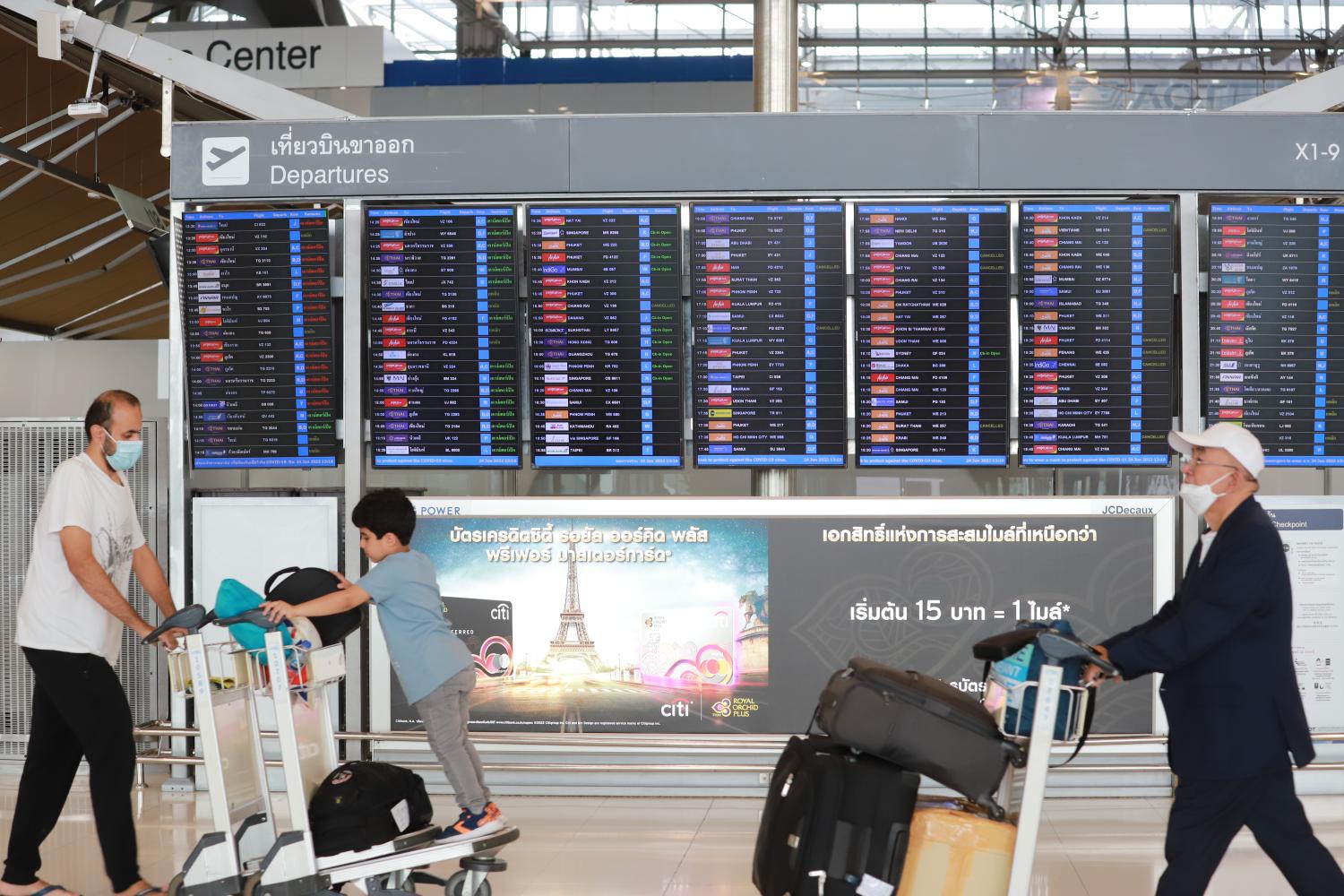
The shortage of airline seats remains a major obstacle for the recovery of Thai tourism as most European flag carriers have not resumed flights and frequencies to the pre-Covid level.
Tourism Authority of Thailand (TAT) governor Yuthasak Supasorn said the agency met the Civil Aviation Authority of Thailand last week and was informed that Thailand might secure just 30.9% international seat capacity of the pre-pandemic level in the upcoming high season.
At present, international airlines, mostly from major long-haul destinations, have not resumed flights as usual, leaving a limited choice for travellers who want convenient direct flights.
The TAT has prepared a marketing plan to support airlines to bring passengers to Thailand, particularly from Russia and other countries in Europe, but it depends on the additional budget it requested.
British Airways' 2022 winter schedule was announced without the London-Bangkok route and the airline said it would not resume a direct service for this route until 2023.
Prior to the pandemic, the airline served a daily flight from London to Bangkok. It currently operates only London-Singapore in Southeast Asia, with a daily flight, a decrease from twice daily before Covid struck.
In 2019, Thailand had a seat capacity of 56.2 million, before plunging to 14.8 million in 2020 and 4.9 million in 2021.
Tassapon Bijleveld, executive chairman of Thai AirAsia and acting chief executive of Thai AirAsia X, said most airlines are facing extremely high operational costs and insufficient manpower and aircraft.
"The aviation business cannot pick up overnight, particularly for those who slashed their workforce during Covid-19," said Mr Tassapon.
He said Thai AirAsia maintained all staff in the past two years to avoid such circumstances during the recovery period as commercial pilots have to extend their licences every six months by training with flight simulators.
However, airlines that have already downsized have to deal with higher wages as they must compete for trained staff, therefore, they have to plan flights more carefully by selecting routes with the most potential amid surging costs to avoid losses, he said.
He said after parking aircraft for over two years, all engines need major maintenance work before taking to the skies, resulting in long queues and full bookings at every maintenance, repair and overhaul facility.
Mr Tassapon said the TAT's initiative to help airlines increase seat capacity is a good strategy to boost the tourism industry.
In the past, governments from many countries adopted similar mechanisms, such as providing incentives for airlines that can carry international passengers at certain levels.
"Providing incentives for airlines could be an effective way to help increase flight capacity to Thailand," he said.







